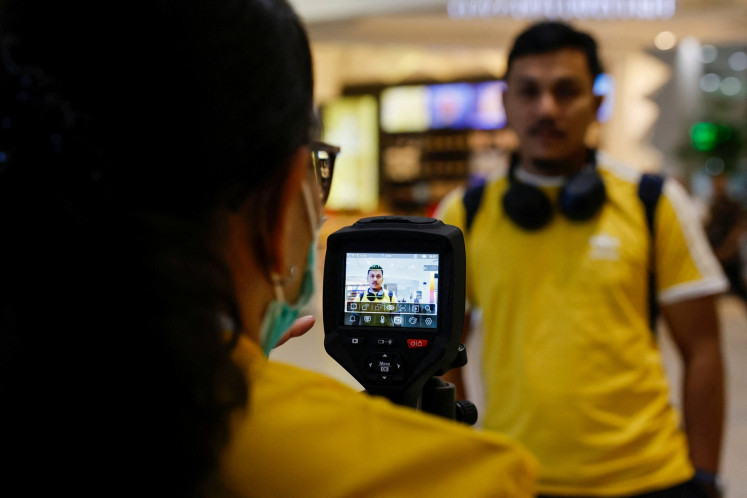Popular Reads
Top Results
Can't find what you're looking for?
View all search resultsPopular Reads
Top Results
Can't find what you're looking for?
View all search resultsSmaller K-pop labels hit hard by coronavirus
The prolonged COVID-19 crisis may be taking a heavy toll on the whole K-pop industry, but small and midsized music labels in particular are feeling the pinch, as their business model relies heavily on tickets, physical albums and foreign funding.
Change text size
Gift Premium Articles
to Anyone
O
ver the last few weeks, the novel coronavirus pandemic has brought the K-pop scene to an unprecedented standstill. Most concerts and meetup events, both at home and abroad, have been cancelled or postponed, while weekly TV shows are being held without audiences.
The prolonged COVID-19 crisis may be taking a heavy toll on the whole K-pop industry, but small and midsized music labels in particular are feeling the pinch, as their business model relies heavily on tickets, physical albums and foreign funding.
“Everything’s stopped. Smaller firms are dealing with almost zero revenue and all they can do is reduce costs as much as they can,” said Kim Gyo-sik, head of K-pop public relations agency HNSHQ.
“If the pandemic goes on for the long term, many of them will go bankrupt like dominos. It’s a matter of time. Even bigger labels won’t be able to recover.”
Big Hit, S.M., JYP and YG are considered the big four agencies that dominate the K-pop market, while runner-ups include Pledis, Starship, FNC and Cube. Amid K-pop’s soaring popularity around the world more recently, there has been a surge in smaller labels, mostly for newly formed bands.
Compared to other industries, new groups are given more opportunities in the fast-paced K-pop industry, as many fans are eager to grow together from the very beginning with their new favorites. But it is also true that rookie groups are more vulnerable in hard times.
In the early stage, it is crucial for them to build a stable fandom through various offline events that enable close interaction with fans. Many rookie groups also go global immediately upon their debut so they can build an international fandom right away.
Due to the current coronavirus outbreak, however, their budding careers have been almost put on hold.
Having debuted under Brave Entertainment in February, nine-piece boy band DKB is among them. The act had planned to start promotions in Japan, the biggest K-pop market outside Korea, in early April, but the plans were scrapped.
“DKB was supposed to perform at KCON Japan and release its Japanese debut album on April 7. But everything went down the drain. It’s hard to measure the total amount of damage,” said Kang Heuk-cheol, the agency’s chief marketing officer.
Kang expressed concerns over the newcomers’ futures, saying, “DKB should be laying the groundwork for their fandom right now.”
Eight-member Ateez, who debuted last year under KQ Entertainment, announced the rescheduling of all seven stops of its European tour, while VAV and ONF, two K-pop acts that have been enjoying international popularity recently, also postponed their world tour dates in Europe and the US, respectively.
“We carried out a modest restructuring recently,” said Ryan Jhun, head of A Team Entertainment, which is home to VAV. “Our planned debut of a new girl band has also been put on hold.”
Bracing for the blow, many K-pop acts are now turning to online promotions.
TOO, a rookie act under n.CH Entertainment, livestreamed its media showcase via YouTube on Monday, while fellow rookie group MCND from Top Media held a debut event online by holding a live chat with fans. Other bands like Newkid, GWSN, D-Crunch and 3YE also share self-made videos to keep communicating with fans.
“Going online may be far better than doing nothing, but it’s not helpful for immediate profits,” said Hwang Jeong-gi, head of talent agency JG Star Entertainment. “It’s a long-term investment.”
He said some agencies are considering charging fees for online events like fan meetings, and a growing number of platform operators are already reaching out for potential collaborations.
“This is a difficult time for all of us, and small businesses should join forces and come up with a more practical win-win plan for survival,” he added.
This article appeared on The Korea Herald newspaper website, which is a member of Asia News Network and a media partner of The Jakarta Post











